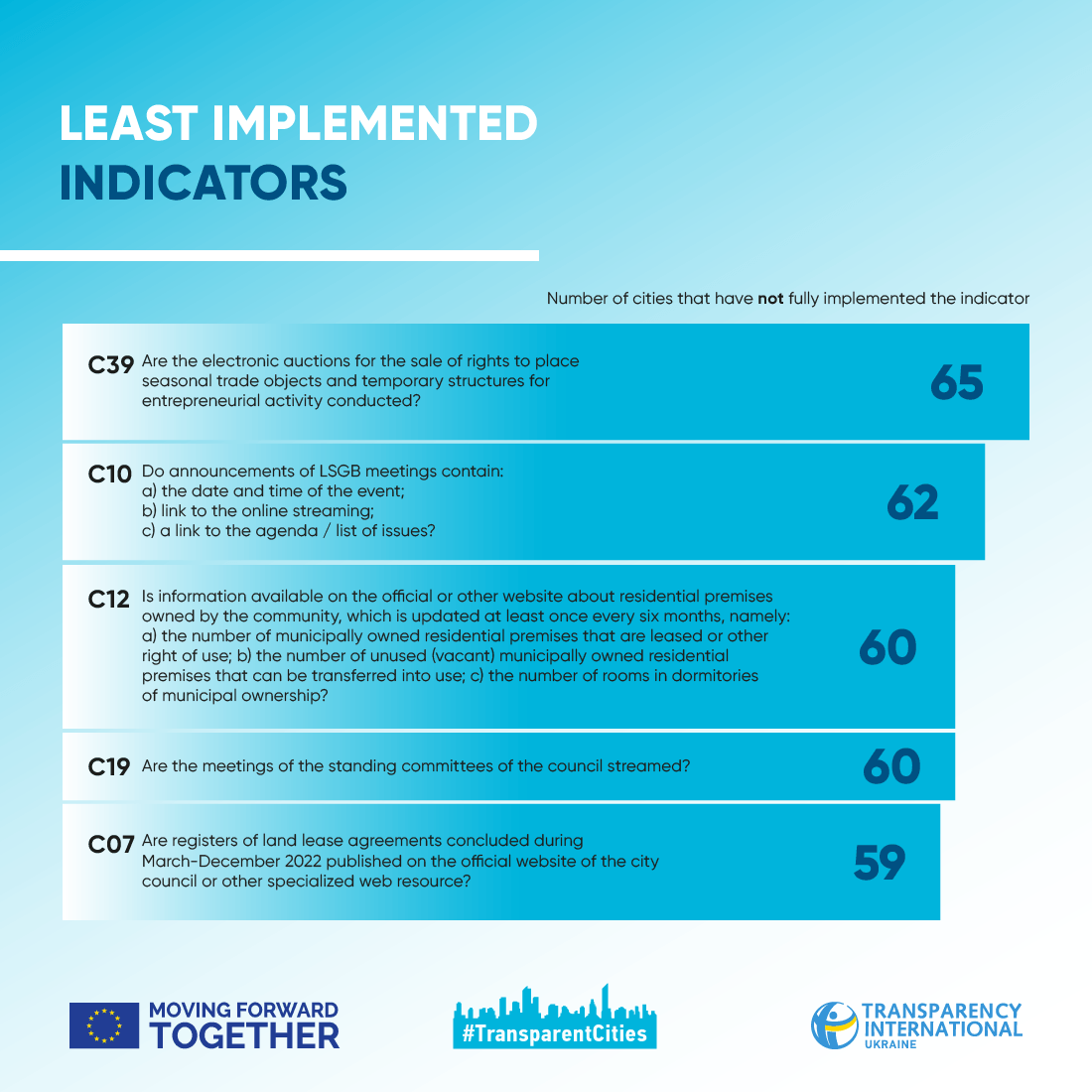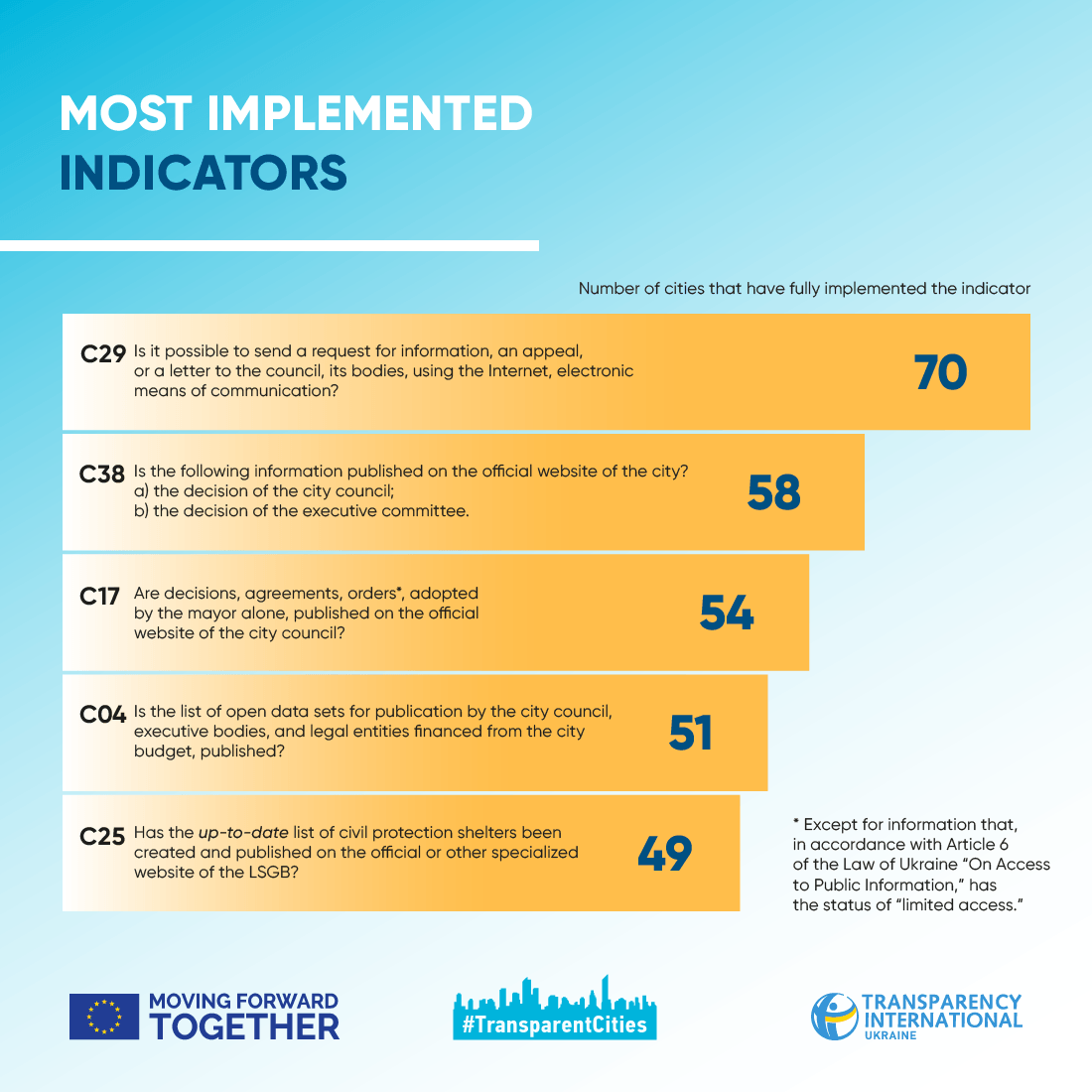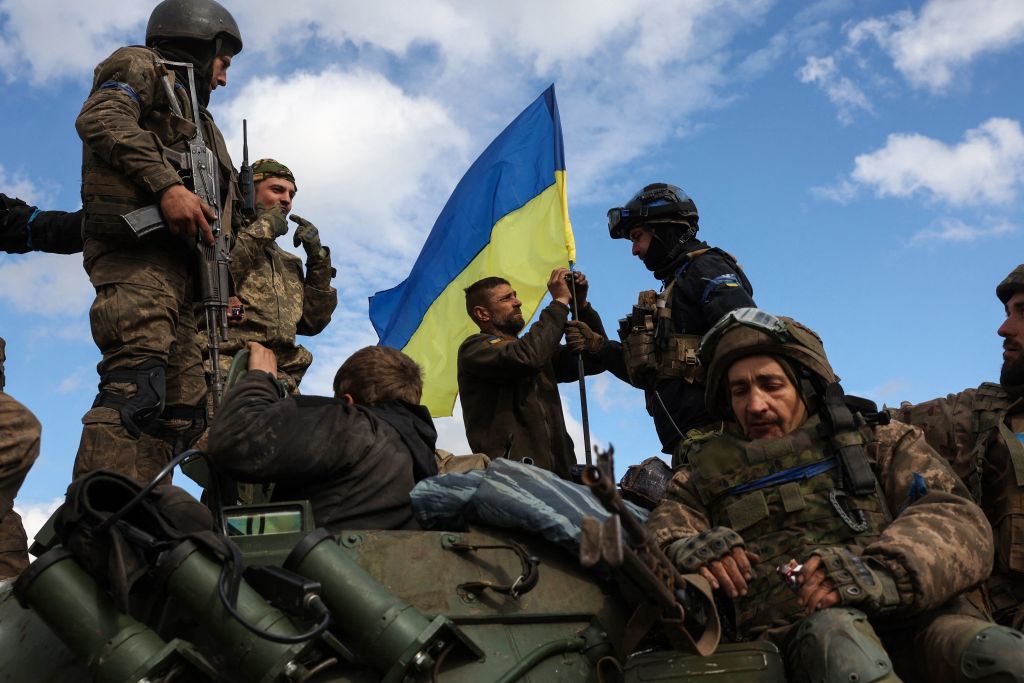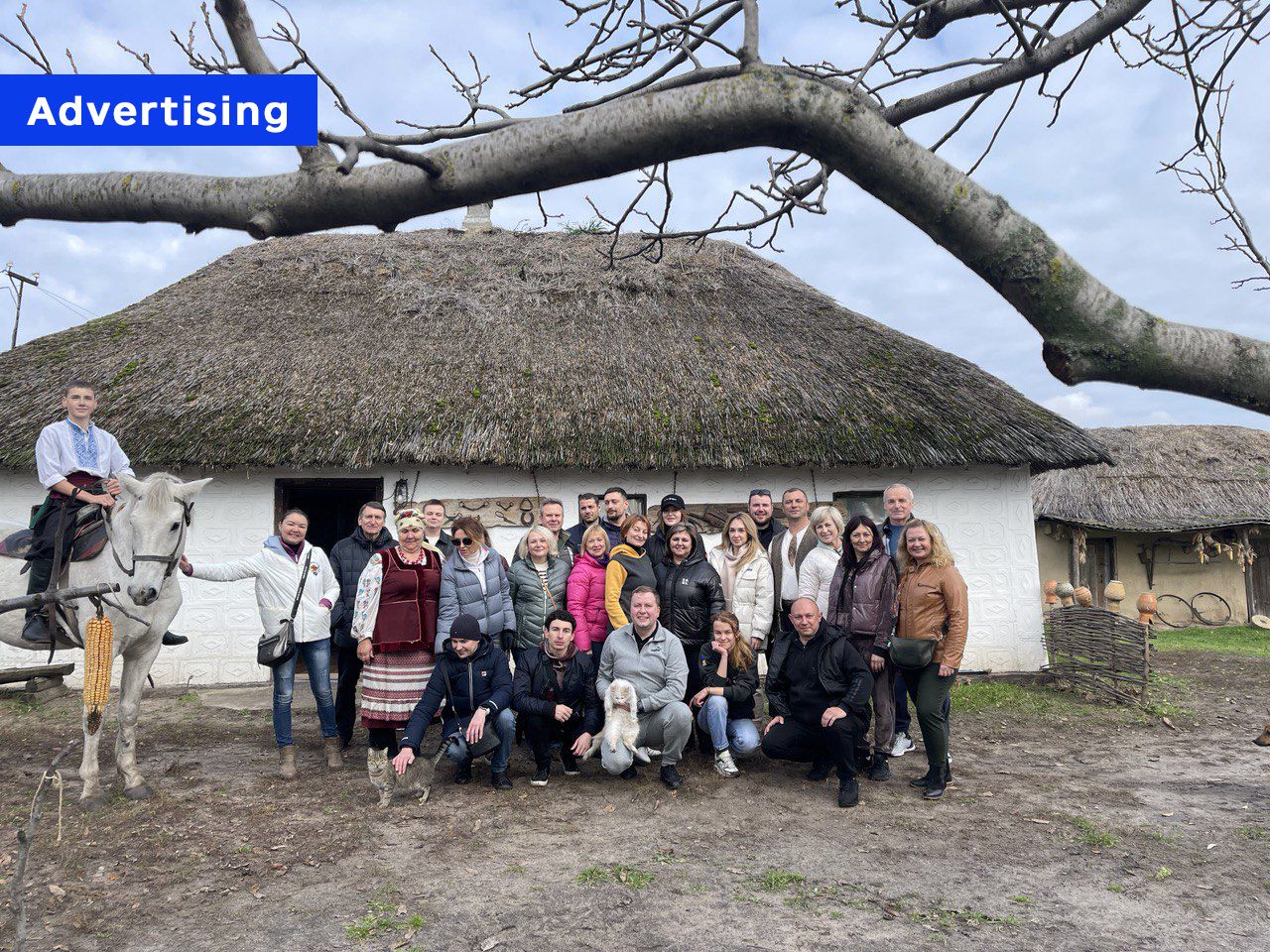Andrii Borovyk: Why Ukrainian cities need to strengthen transparency during the war
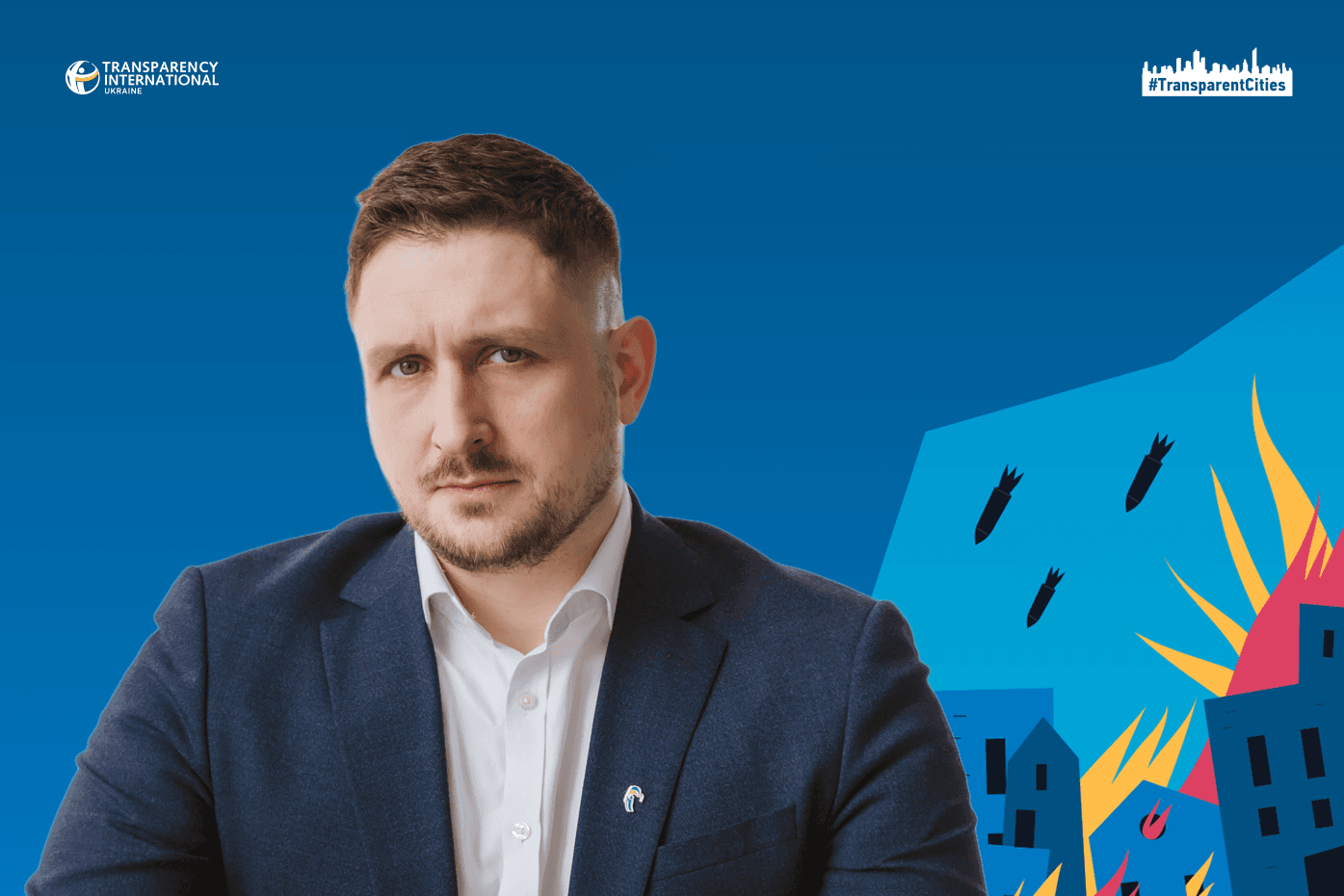
Editor’s Note: The opinions expressed in the op-ed section are those of the authors and do not purport to reflect the views of the Kyiv Independent.
The full-scale war started by Russia has shown that decentralization in Ukraine works. It was local authorities’ ability to make rapid, essential decisions independently that helped many cities withstand the first attacks and coordinate the lives of their citizens – in one way or another.
We saw examples of such resilience both in the cities that came under direct Russian attack and those that were in the deep rear. Russian authorities have demonstrated that not a single city is really safe – anywhere in Ukraine can be a target of Russian attacks.
Security has become a priority for all Ukrainian municipalities. It was a need for greater security measures that primarily influenced cities to increasingly conceal information about their work. While such actions were justified at first, this argument has grown weaker over time.
Moreover, the war has not only affected the work of local self-government but also highlighted previously existing problems – including those related to transparency.
We are witnessing a global paradox: As Ukrainians have shown an increasing desire to engage with decision-making in the community, local authorities, which have focused their efforts entirely on the protection of their residents this past year, have distanced themselves from their constituents with each month of the war.
When the full-scale war started, local authorities’ transparency suffered a noticeable setback, despite clear successes achieved by Ukraine in the past.
What does this mean for millions of brave hearts, and how do we fix this situation? Let’s figure it out.
How transparent are Ukrainian cities during the war?
New research by Transparency International (TI) Ukraine’s Transparent Cities program has found that only three of 70 cities could be identified as “transparent.” Ten have been labeled “partially transparent.”
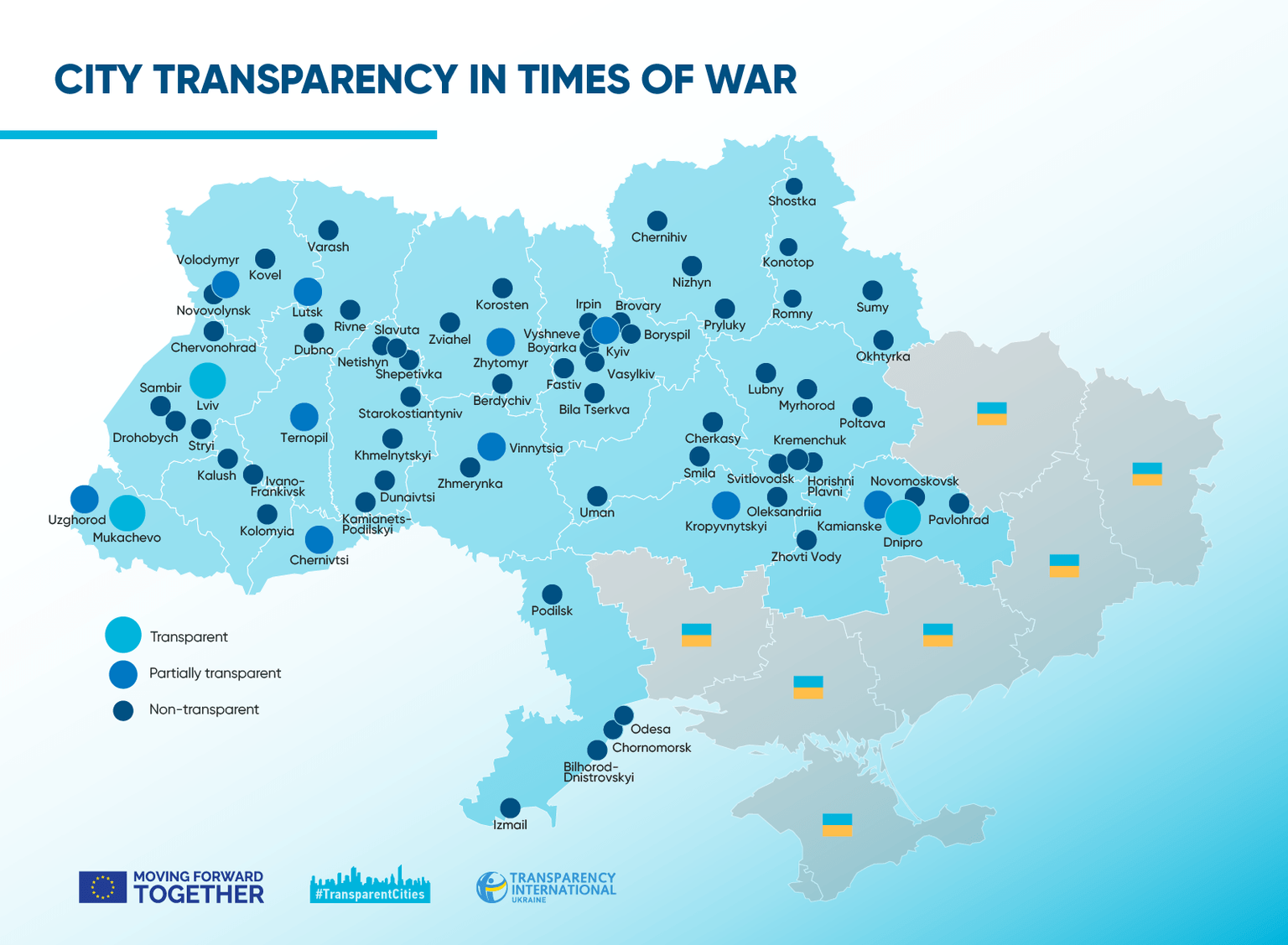
TI Ukraine’s Transparency and Accountability Rankings of Ukrainian Cities from before the full-scale war showcased quite decent results. Over a period of five years, cities’ average transparency increased by 62.2%.
Ukraine was also considered one of the world’s leading countries for cities’ openness of data. Ukrainian cities battled for the top spot in the Transparency Ranking, and healthy competition stimulated development and peer exchange to improve people’s lives.
This year, however, Transparent Cities conducted a study with new indicators adapted to the conditions set by martial law. Cities’ average compliance is 37.5% and requirements set by Ukrainian legislation were 47.8% fulfilled. Essentially, over half of the legal demands were not addressed by local authorities amid the war.
The graphics below show the indicators that were followed by local councils, and the ones which were disregarded:
The issue of transparency was put on the back burner at the beginning of the full-scale war, and Ukrainian authorities have not ensured the same degree of transparency in their work. This is influenced by numerous war-related factors, like the fact that local governments have had to work under round-the-clock pressure and focus on the main task of resident safety.
The protection of people is not something that can be postponed or delayed. These are tasks that require a lot of involvement and resources, and such conditions are not conducive to a comprehensive approach to increasing transparency.
At the same time, Ukrainian city councils should stay on the path toward transparency as much as possible. This is what their voters and international partners expect, especially as their interest in Ukrainian authorities’ transparency has only increased following the full-scale invasion.
What should we strive for?
In June 2022, Ukraine was officially designated a candidate to join the EU – a valued signal to the entire country, especially during the war.
We understand that this also entails multiple requirements. Among them are the continuation of initiated reforms, the establishment of the principles of good governance, and the fight against corruption. To get closer to EU membership, Ukraine should take real action to achieve European standards.
An important prerequisite for cooperation with international partners during post-war reconstruction is, as expected, the transparency and accountability of authorities. This becomes only more critical since it directly affects investments and the implementation of joint reconstruction projects. Like potential investors, local residents are also interested in understanding the procedure for restoring their cities.
When post-war reconstruction starts, transparency and accountability will become key factors in cooperation agreements. “Between Security and Transparency,” a study of city councils’ work during the war, analyzed the steps necessary for cities to reach this goal.
At a minimum, the requirements for cities include:
- Adapting their work to the challenges of war by creating and updating services to help the population
- Publishing as much open data as possible
- Distributing and accounting for humanitarian aid transparently
How can Ukrainian cities become stronger before victory?
Today, our cities need support. Knowing how ready citizens are to get involved in Ukraine’s recovery, we also need help from other enthusiasts and experts from across the world.
With the war raging at the front line, local authorities are fighting for desperately needed resources. How quickly Ukraine will overcome the Russian onslaught also depends on coordinated work in the rear, which includes receiving aid from abroad. We have to destroy the enemy together, or it will come back stronger in the future.
By supporting Ukrainian communities, cities abroad can make a direct contribution to future peace, the victory of Ukraine, and European stability. Establishing contacts and mutual understanding between countries and communities will also support Ukraine’s path to the European Union, which remains one of Ukrainians’ greatest aspirations today.
During the full-scale invasion, Ukrainian cities already had time to learn more about partnerships and find sources of basic aid. However, they still need financial support, equipment, and medication. Ukraine also critically needs cultural, educational, and scientific exchanges with its peers, as well as the involvement of foreign specialists in reconstruction.
How can you help Ukrainian cities?
- Register your community on Cities4Cities. This online platform combines the requests and needs of Ukrainian cities with the knowledge, experience, and capabilities of European cities. It’s completely free and, most importantly, it’s open and transparent.
- Sign a partnership or “twinning” agreement with Ukrainian cities directly. To do this, find out about potential areas of cooperation and develop a draft agreement.
- Donate to UNITED24, a platform that serves as one of the main channels through which to raise funds for Ukraine.
- Support Ukraine with humanitarian aid through its official portal. The website outlines Ukrainian regions’ needs, provides instructions, and has a dashboard showcasing the assistance already provided.
- Contact the Transparency Cities program, which can help you deliver the necessary aid or communicate with Ukrainian municipalities directly.
Ukrainians will persevere and overcome. To help these brave people become part of the big European family, you can start with a partnership between cities right now. We are ready for cooperation and, with the help of our international friends, we can overcome the challenges faced by every Ukrainian city.



